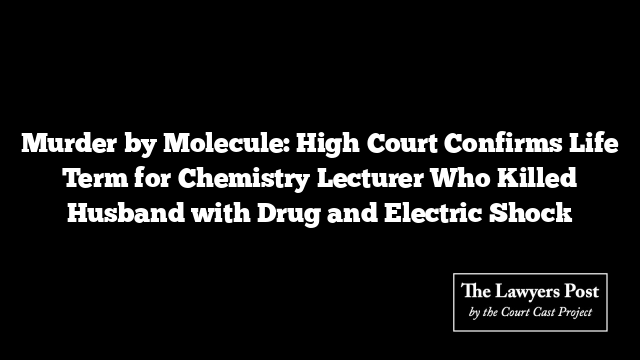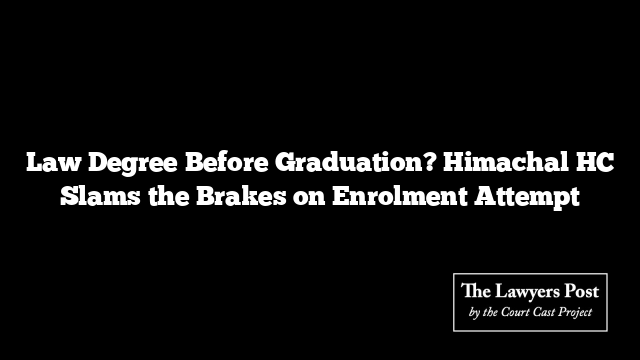In a chilling blend of science and malice, the Madhya Pradesh High Court has upheld the conviction of a government college Chemistry lecturer for the calculated murder of her husband, a senior medical officer, by drugging him and then electrocuting him to death.
The woman at the center of the case, Mamta Pathak, had initially informed police about her husband’s death in 2021. But the tale of a grieving wife quickly unraveled into a forensic thriller. A deeper investigation revealed a grim picture—an antipsychotic drug used to sedate Dr. Neeraj Pathak, followed by a deliberate electric shock that proved fatal.
The court, unmoved by the drama that unfolded in hearings—including a viral video clip of Mamta arguing her own appeal with scientific flair—determined that the chain of evidence was seamless. “Her guilt is proved beyond reasonable doubt,” ruled the bench of Justices Vivek Agarwal and Devnarayan Mishra. Her interim suspension from custody was canceled. Orders were passed for her immediate return to prison.
Mamta, once a respected educator, was found to have had a rocky marriage marred by suspicion, emotional abuse, and allegations of cruelty. The court dismissed her claim that Dr. Neeraj died of natural causes related to cardiovascular disease, as well as her assertion that she was framed by relatives eager to claim his property. The judges pointed out that their sons—being legal heirs—made the motive of property dispute unconvincing.
Her courtroom defense, rich in references to scientific evidence—closed-mouth rigor mortis, lack of chemical and electron microscopy tests, and even the insulated nature of the house—was systematically dismantled by the court. The judges emphasized that none of these points overrode the damning evidence against her.
Mamta’s argument that she was both a caring wife and a devoted mother failed to sway the court. It observed that while someone may be a loving parent, that doesn’t erase the role of a partner whose jealousy or suspicion could spiral into violence. Photographs of happy times and maternal devotion, the court noted, belonged to a distant past, not reflective of the volatile recent history between the couple.
The courtroom saw a combination of legal heavyweights and personal performance. Senior counsel appeared for Mamta, but she also chose to represent herself during parts of the proceedings, offering scientific rebuttals that became social media spectacle. However, legal theatrics could not undo the core of the crime.
With her conviction now reaffirmed, the Chemistry teacher who once stood at a blackboard now faces life behind bars—her final lesson being one in justice.





